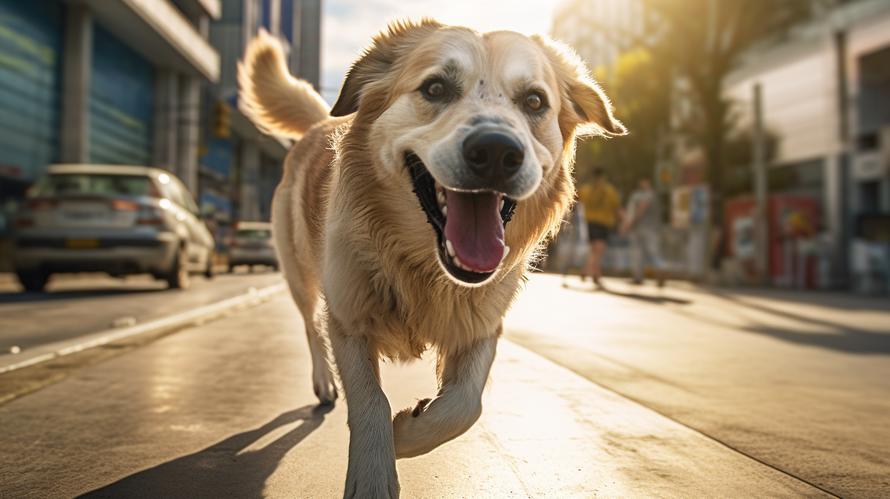Consider this: a dog breed that has been selectively bred for over 4,000 years to live in harmony with flocks of sheep and goats. Not only to live in harmony with them, but to protect them fiercely from any possible threat. Interestingly, this breed is also known for its unique ability to make decisions independent of its human master. This might seem like the beginning of an adventure novel or even a captivating science fiction, but it’s not. This is the reality of the Anatolian Shepherd Dog.
Hailing from the region of Anatolia in the rugged, rural parts of Turkey, the Anatolian Shepherd Dog is a noble and hard-working canine breed. A bite of this breed’s history reveals a painstaking process to create a dog that’s highly protective, independent, and sturdy. But however adaptable and strong this breed is, you might still be wondering about one thing. How healthy is the Anatolian Shepherd Dog?
If you’re considering adopting one of these beautiful dogs or are merely intrigued by their history and characteristics, you probably want to know about their health. As a diligent future pet parent or canine enthusiast, knowing these details is crucial. That’s why we’re taking a deep dive into the world of the Anatolian Shepherd Dog to help answer this question.
Generally speaking, the Anatolian Shepherd is a naturally healthy dog with an average lifespan of 11 to 13 years. However, it’s important to note that all breeds have their own set of health challenges and the Anatolian Shepherd Dog is no exception. They are a large breed, and like many large breeds, they can be prone to certain conditions like hip dysplasia, hypothyroidism, and entropion, which are fairly common.
Hip dysplasia is a genetic condition where the hip joints do not develop correctly leading to discomfort, pain, and possible arthritis as the dog matures. Hypothyroidism is a condition related to the dog’s thyroid gland, leading to issues with metabolism, weight gain, and skin problems. Entropion is an eye ailment in which the eyelid rolls inward, causing irritation. These common health conditions in large dogs are influenced by factors like genetics, diet, and exercise.
Coincidentally, the robust nature of the Anatolian Shepherd Dog also is a double-edged sword. Their high degree of independence which was so necessary for their professional roles also means that they might not show signs of pain or illness until it’s severe. Out in the field, showing weakness could lead to disastrous consequences. So these dogs have ingrained traits to hide their ailments as long as possible. This quality stresses the importance of regular check-ups with your vet if you own or plan to own this breed.
Prevention and early detection are the two major steps to ensure the health of any dog. Nutrition plays a crucial role in disease prevention. Feeding your Anatolian Shepherd high-quality dog food formulated for large breeds will benefit their overall health and longevity. When it comes to early detection, scheduling regular vet visits is key. Your vet will most likely recommend a hip evaluation, thyroid exam, and an eye exam for your Anatolian Shepherd.
It’s also worth noting that the Anatolian Shepherd is emotionally robust. They tend to be more reserved and less destructive, indicating their mental health is as strong as their physical health. However, they still need regular physical and mental stimulation to keep them content. Physical exercise, such as daily walks or playtime, and mental tasks, like interactive toys, can help ensure your Anatolian Shepherd remains healthy in mind as well as body.
Despite these potential health issues, the Anatolian Shepherd Dog proves itself to be generally healthy and strong more often than not. It has been bred to survive tough conditions and overcome challenges independently. This resilience contributes to a sturdy physical constitution, potentially long life, and robust mental health.
In conclusion, like any dog breed, the Anatolian Shepherd Dog comes with its own set of health challenges and risks. However, this majestic breed is notably resilient and robust, both physically and mentally. Proper care, including a balanced diet and regular exercise, can aid in keeping this breed healthy and vibrant. If you embrace the routine of vet check-ups and maintain a preventive eye towards any sign of discomfort, adopting an Anatolian Shepherd might be one of the best investments into the furry companion world you could make.
Remember, not only would you be taking on a faithful pet, but you’d also be becoming part of a millennia-old human-dog relationship dating back to the Bronze Age!



